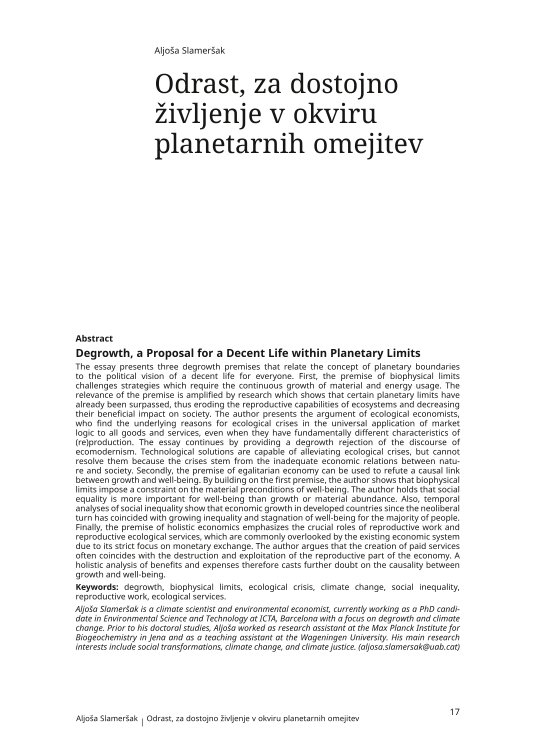The essay presents three degrowth premises that relate the concept of planetary boundaries to the political vision of a decent life for everyone. First, the premise of biophysical limits challenges strategies which require the continuous growth of material and energy usage. The relevance of the premise is amplified by research which shows that certain planetary limits have already been surpassed, thus eroding the reproductive capabilities of ecosystems and decreasing their beneficial impact on society. The author presents the argument of ecological economists, who find the underlying reasons for ecological crises in the universal application of market logic to all goods and services, even when they have fundamentally different characteristics of (re)production. The essay continues by providing a degrowth rejection of the discourse of ecomodernism. Technological solutions are capable of alleviating ecological crises, but cannot resolve them because the crises stem from the inadequate economic relations between nature and society. Secondly, the premise of egalitarian economy can be used to refute a causal link between growth and well-being. By building on the first premise, the author shows that biophysical limits impose a constraint on the material preconditions of well-being. The author holds that social equality is more important for well-being than growth or material abundance. Also, temporal analyses of social inequality show that economic growth in developed countries since the neoliberal turn has coincided with growing inequality and stagnation of well-being for the majority of people. Finally, the premise of holistic economics emphasizes the crucial roles of reproductive work and reproductive ecological services, which are commonly overlooked by the existing economic system due to its strict focus on monetary exchange. The author argues that the creation of paid services often coincides with the destruction and exploitation of the reproductive part of the economy. A holistic analysis of benefits and expenses therefore casts further doubt on the causality between growth and well-being.




